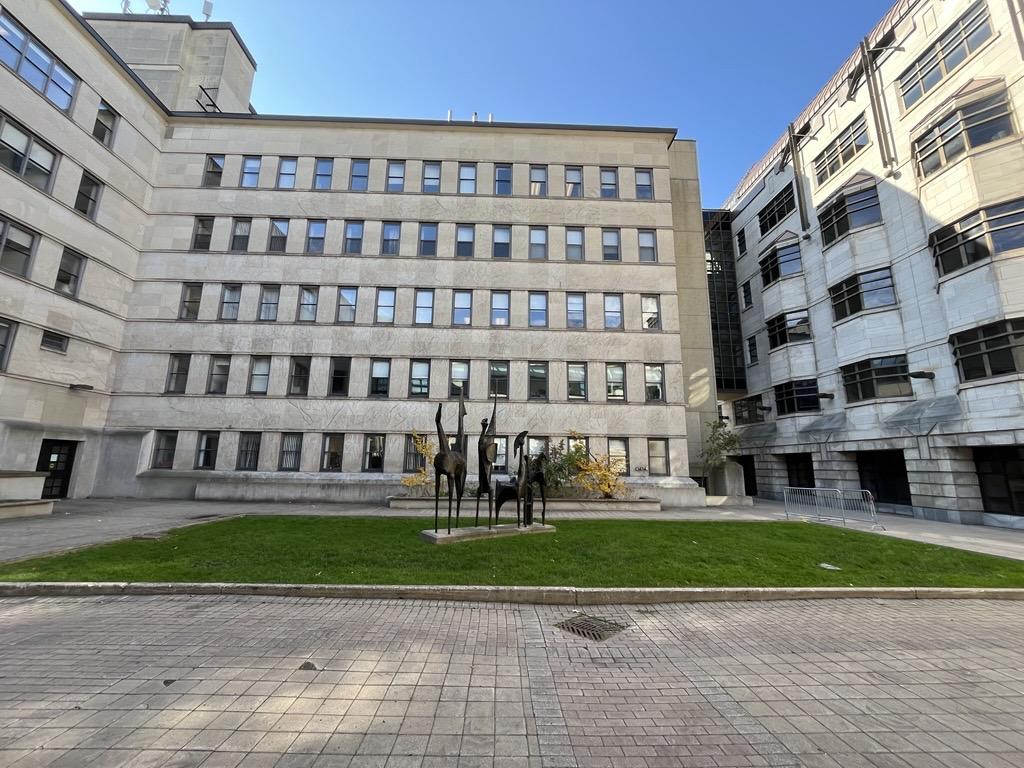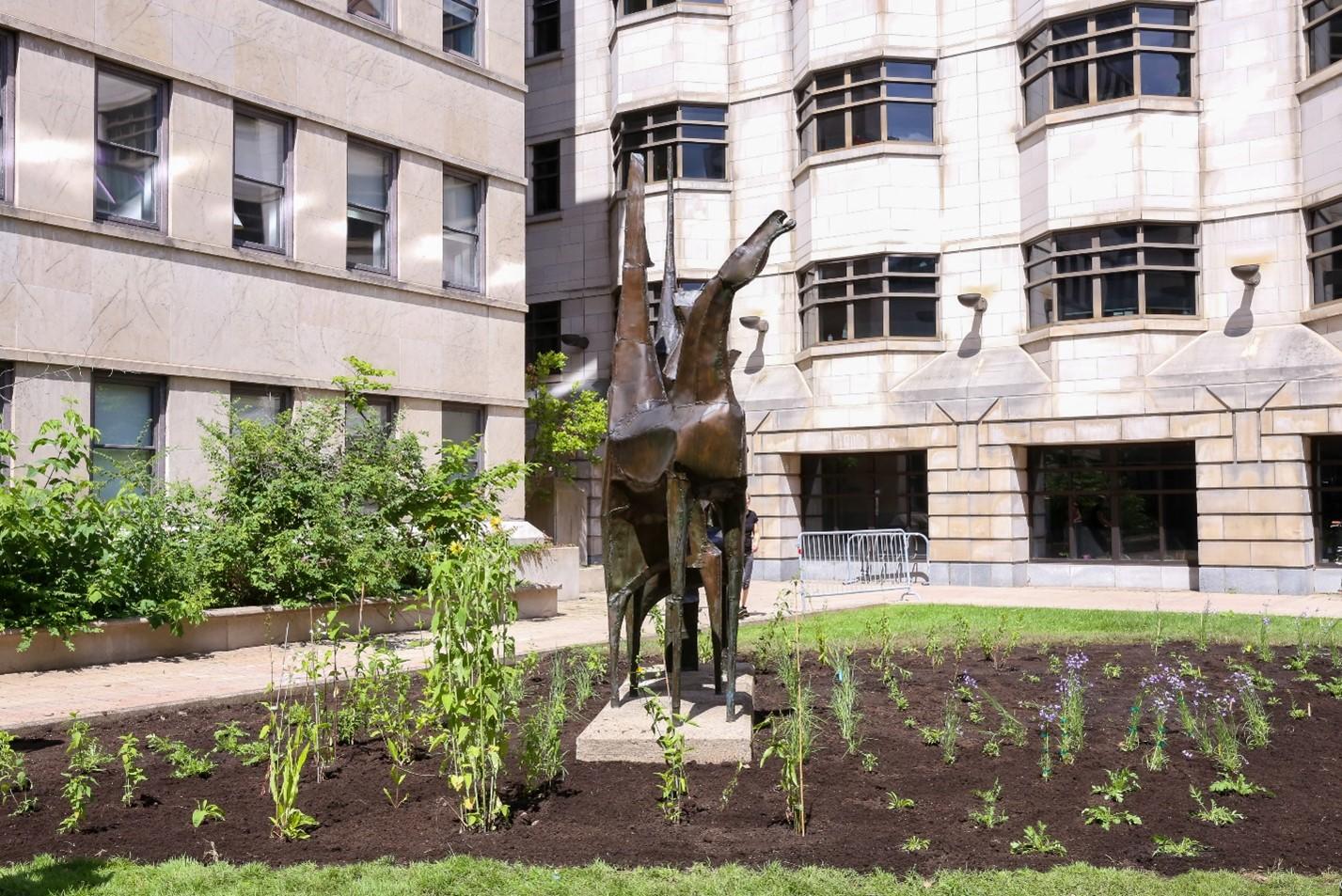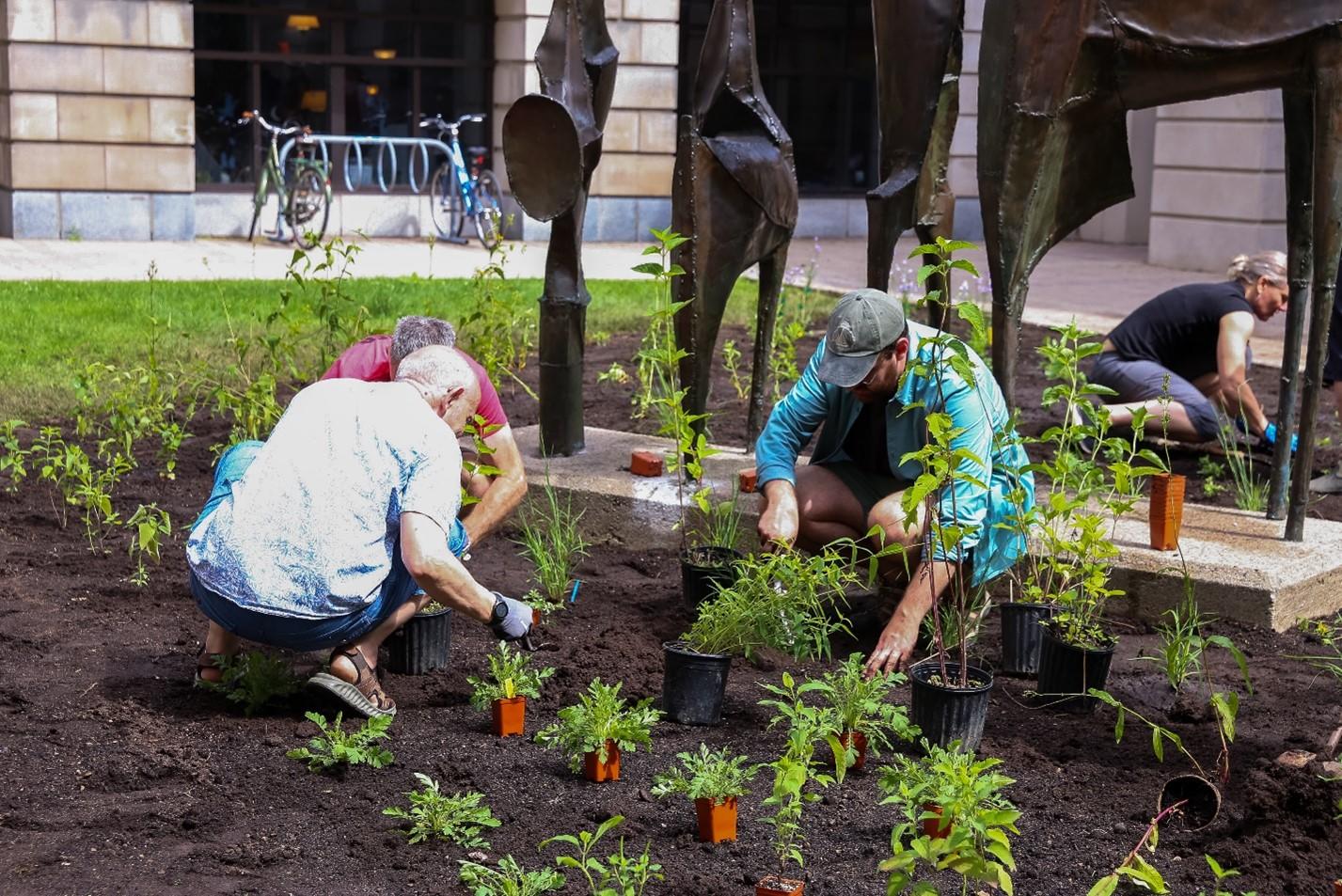
Nestled amid newly unveiled murals, digital art installations and colourful benches — part of the freshly inaugurated Arts District — the garden breathes life into this creative public space at the heart of campus.
Developed in collaboration with the Department of Geography, Environment and Geomatics, this garden encircles Bruce Garner’s bronze horse sculpture, symbolizing transformation.
The garden features twelve species native to the Ottawa region, including little bluestem, New England aster and wild bergamot. The plants were selected for staggered bloom times, varied colours and suitability to conditions in the garden. Sourced from Ontario Native Plants and Solidago Farm, they strengthen habitat connectivity, support local pollinators, sequester carbon and bolster ecological resilience. See the full list of plant species in the garden.

Honouring community and legacy
More than 10 geography department professors, employees and family members volunteered to plant the garden in memory of two beloved colleagues, professors Eric Crighton and Kenza Benali, both of whom passed away last year. Their shared values on community and the importance of a sense of place and belonging left an enduring impact on campus life. As one volunteer remarked, “They planted seeds of knowledge that continue to grow.” This makes the garden a living tribute to their legacy.
Now, the community can enjoy views of the garden and connect with nature, whether by taking a peaceful lunch break, studying outdoors or simply spending time in a welcoming green space.

Building on a growing campus movement
This project follows previous pollinator gardens, such as the Academic Hall garden planted in 2024 and the Marion garden launched in 2023.
As part of a growing network of enhanced green spaces, the Simard–Hamelin garden cultivates biodiversity, honours colleagues’ memory and inspires a nature-positive future.
We gratefully acknowledge support from World Wildlife Fund Canada in funding the purchase of the plants for this project through their Go Wild Grant.
